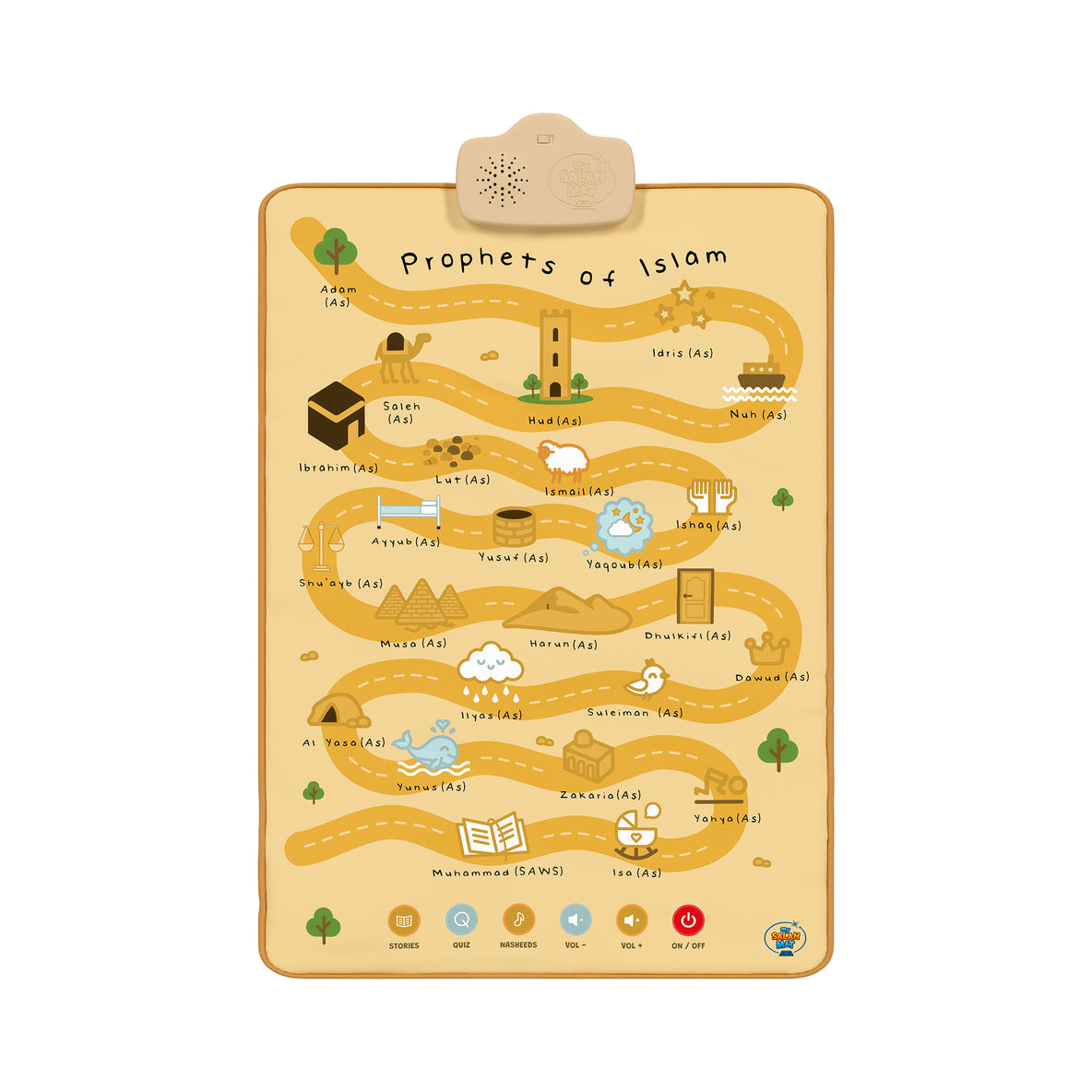Message from the writer: "Prophet Isa, peace be upon him, is a name many of us grew up hearing in different places, different stories, and different traditions. Yet the Qur’an gives us a version that is both beautiful and deeply grounding. In this blog, I want to gently revisit his story, using the Qur’an as our anchor, and reflect on how his stories inspire generations to follow."
Who Is Jesus According to Islam? A Story of Mercy, Truth, and Miracles
Known as Jesus in wider cultures, Prophet Isa, peace be upon him, holds a special place in the Qur’an. He is mentioned with honour, described as "a fulfilment of Allah's Word" (Q.S. 4:171) and supported by great signs. The Islamic understanding of who he is is clear and beautiful. He was a human messenger. Chosen. Miraculous. Devoted. But still a servant of Allah.
When we read his story in the Qur’an, several truths stand out:
A Miraculous Birth by Allah’s Power
Allah created Isa (AS) without a father, just as He created Adam without either parent. His birth reminds us of Allah’s complete ability, that nothing is difficult for Him.
A Prophet Who Called to Tawheed
Isa (AS) called people to worship Allah alone. He taught humility, truth, and compassion. The essence of his message resonates with the heart, because it is the same message carried by all prophets, it is to return to Allah with sincerity.
Miracles That Show Allah’s Greatness, Not Divinity
Speaking as an infant, healing the sick, bringing ease to people — each miracle came by Allah’s permission.
The Qur’an says:
“I heal the blind and the leper, and I give life to the dead by Allah’s permission.” (3:49)
This ayah beautifully centres where true power lies: with Allah, not with Isa himself.
Honoured, Not Worshipped
Islam teaches love and respect for Isa (AS) without crossing into worship. This balance is part of what makes the Islamic view so rooted, so peaceful, and so reassuring.

Reflecting on Isa’s Character in Our Own Lives
Even as adults, Isa’s (AS) story speaks to us. His gentleness, his patience in the face of rejection, his devotion to prayer, and his reliance on Allah during hardship teach us how to carry ourselves with grace.
There is a softness to his story that stays with generations to follow. The kind that reminds the heart of mercy in moments when the world feels harsh.
Teaching this to children does not need structure or formality. Sometimes it begins with a small reminder. A gentle story, a moment of reflection at bedtime, or a question that opens a conversation:
“Do you know that Isa was a prophet who always spoke truth, even when it was hard?”
These simple moments help us connect our families to the prophets in a natural, meaningful way.
How Interactive Tools Can Support Islamic Learning at Home
For many families, especially those raising children in multicultural environments, stories of the prophets become an anchor. This is where tools like the Prophets of Islam Interactive Audio Mat and Wall Art make learning easier and more heartfelt.
Instead of long lessons or screens, this wall art offers:
-
touch-activated audio stories
-
child-friendly narrations
-
simple descriptions of all 25 prophets
-
a quiet, screen-free way to learn

Children can listen to the story of Prophet Isa in their own time, pressing the button whenever curiosity arrives. It gives them a way to explore Islamic history without pressure, helping them grow familiar with names, stories, and values at their own pace.
Parents often find that leaving the wall art visible turns it into a daily reminder, a gentle invitation to remember Allah and His prophets without having to plan a formal lesson.
It becomes part of the home, the atmosphere, and most importantly, the heart.
You might also like to read:
How Our Prophets of Islam Wall Art Helps Children Learn
FAQs
1. Why is the Islamic view of Jesus different from others?
Islam teaches that Isa (AS) was a human prophet, chosen and honoured, but never divine. The Qur’an gives a clear, balanced narrative that protects the purity of tawheed.
2. Is it confusing for children to learn about Jesus from different sources?
Children adapt well when given simple, consistent explanations. Sharing the Qur’anic story at home gives them clarity and confidence.
3. How can families make learning about the prophets more engaging?
Short stories, conversations, and interactive tools like the Prophets of Islam Wall Art help children learn through sound and repetition without screens.
4. Is the Prophets of Islam Wall Art suitable for all ages?
Yes. Young children enjoy the audio buttons, while older ones benefit from revisiting the stories independently.
5. Can adults also use this product to learn?
Absolutely. Reverts and lifelong Muslims use it as a simple way to revise or reconnect with the stories of the prophets.




0 comments